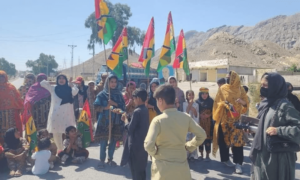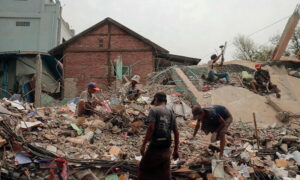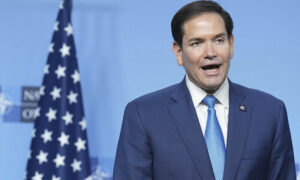ISLAMABAD:
Political and religious leaders from the Islamic world, along with education experts, stressed the importance of promoting literacy, especially among girls, during the concluding session of the International Conference on Girls’ Education in Muslim Communities on Sunday.
They emphasized that girls’ education is a cornerstone of a sustainable and prosperous society.
Speaking at the conference and a panel discussion on its sidelines, the leaders highlighted the urgent need for inclusive policies, cultural engagement, and increased funding to bridge the educational gaps for women.
The ‘Islamabad Declaration,’ adopted at the conclusion of the two-day event, called for gender-sensitive policies, resource mobilization, and strengthened partnerships with international organizations to enhance educational opportunities for girls in Muslim communities.
Approximately 150 delegates from 47 countries attended the conference. Although delegates from Afghanistan’s Taliban government were invited, they did not attend the landmark event, which aimed to address the challenges and opportunities in advancing girls’ education.
The conference brought together global leaders, including Organization of Islamic Cooperation (OIC) Secretary General Hissein Brahim Taha, Muslim World League (MWL) Secretary General Mohammad bin Abdul Karim Al-Isa and others. Senate Chairman Yousaf Raza Gilani addressed the concluding session.
Notable woman participants included Nobel laureate Malala Yousafzai, former Norwegian prime minister Kjell Bondevik, head of UN Assistance Mission in Afghanistan (Unama) Roza Otunbayeva, UK’s Baroness Sayeeda Warsi, Dr Gulnara Janiyeva from Uzbekistan’s Centre for Islamic Civilisation, and others.
In her speech, Malala Yousafzai urged Muslim leaders to back efforts to make gender apartheid a crime under international law, and called on them to speak out against Afghanistan’s Taliban over its treatment of women and girls.
She said Muslim voices must lead the way against the policies of the Taliban, who have barred teenage girls from school and women from universities. “In Afghanistan an entire generation of girls will be robbed of its future,” she said. “As Muslim leaders, now is the time to raise your voice, use your power.”
She urged Muslim leaders not to legitimise the Afghan Taliban government. “Simply put, the Taliban do not see women as human beings. Do not legitimise them,” 27-year-old told the conference. “They cloak their crimes in cultural and religious justification,” she said.
“You can show true leadership. You can show true Islam,” she stressed. She also opposed the Pakistan government’s plans to deport illegal and unregistered Afghans. “I cannot imagine an Afghan girl or an Afghan woman being forced back into the system that denies her future,” she cautioned.
Yousafzai also highlighted the impact of wars in Yemen, Sudan and Gaza on schooling. “In Gaza, Israel has decimated the entire education system,” she said. “I will continue to call out Israel’s violations of international law and human rights.”
Concluding the conference, Senate Chairman Gilani urged governments, civil society, and international partners to collaborate in creating an environment where girls were encouraged, supported, and empowered to pursue their education.
“The future of any society lies in the education of its youth, particularly girls. We cannot build a prosperous future if we leave half of our population behind,” he said, adding that history taught that educated Muslim women played a major role in shaping societies.
“Literacy, especially among women, is the cornerstone of a sustainable and prosperous society. Educating girls transforms individual lives and uplifts entire communities by improving health outcomes and fostering economic empowerment, building resilience, and strengthening social cohesion.”
Gilani emphasised that education was not a privilege but a fundamental right. He called on Muslim communities and the international community to renew their commitment to empowering girls through education.
(WITH INPUTS FROM AGENCIES)











